A Complete Guide to Pocket Knife Opening Mechanisms
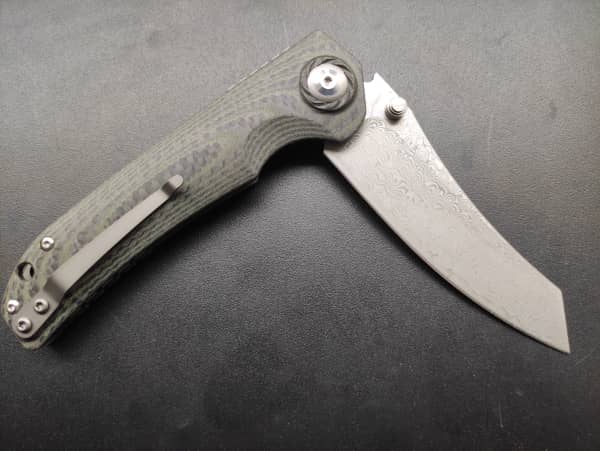
One thing that makes pocket knives very popular among enthusiasts is their unique way of opening them. The fact that you can fold and unfold the blade when you wish adds a level of convenience that no other type of knife is able to pull off. Depending on the type, design, and function, pocket knives have different opening mechanisms.
All geared towards adding more functionality and making them reliable. We are going to explore some of the top pocket knife opening mechanisms, look at how they affect knife handling, and explore some benefits and drawbacks of using them. If you are looking to get a pocket knife sometime soon, then this is for you.
Thumb Stud
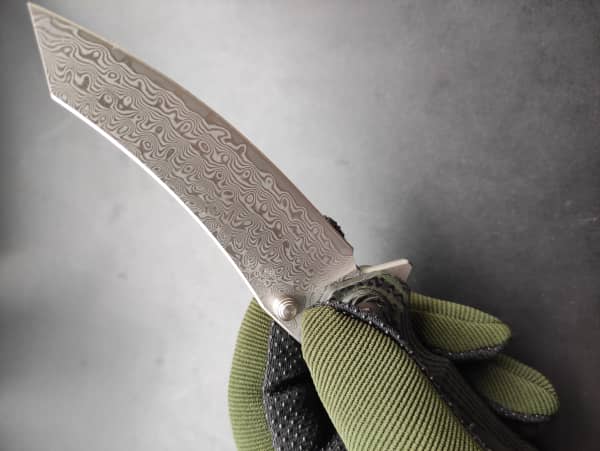
This is a simple opening mechanism that is used on most pocket knives. It comes with a stud that can be operated by the thumb, hence the name thumb stud. The working behind it is very simple. The thumb applies some little pressure on the small stud, creating sufficient leverage on the blade, and this makes it easy for a one-handed opening. Some advanced forms feature a dual thumb stud for left-handed people.
Flipper
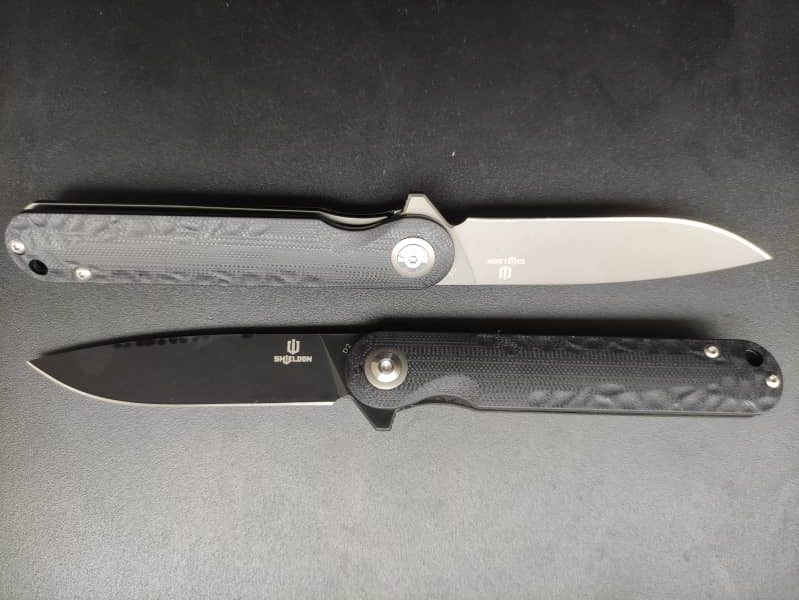
This is none of the most popular pocket knife opening mechanisms and has been popularized by movies. You may have seen a scene where an actor flips their wrists while holding a knife that opens up to reveal a blade. Instead of studs, what you have is a round button called a flipper that quickly opens, releasing the blade the moment it is pressed. They function by providing leverage at a distance that’s much closer to the pivot, fingernail and this makes the opening a bit faster and smoother than other pocket knives.
Nail Nick
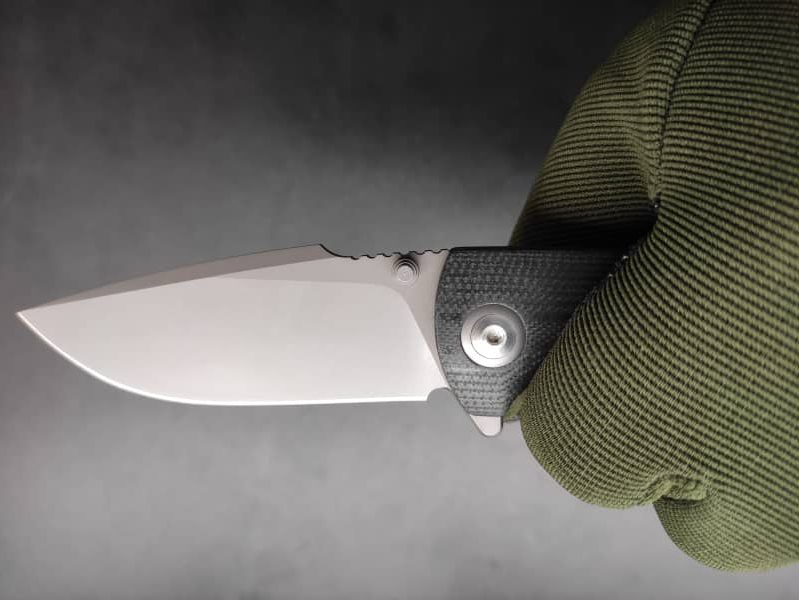
Nail nicks are small grooves on the blade of a pocket knife that helps the user in opening it quickly and safely. It may not be as efficient as the other styles since it requires the user to use both hands to pry the knife open. The groove on the upper parts of the balance is made to be deep enough for a fingernail to dig into to provide the leverage needed to open it. If you are looking for a tactical and defensive knife, then you should avoid going with this type of opening mechanism. You need something that opens quickly on the spot when needed.
Thumb Hole
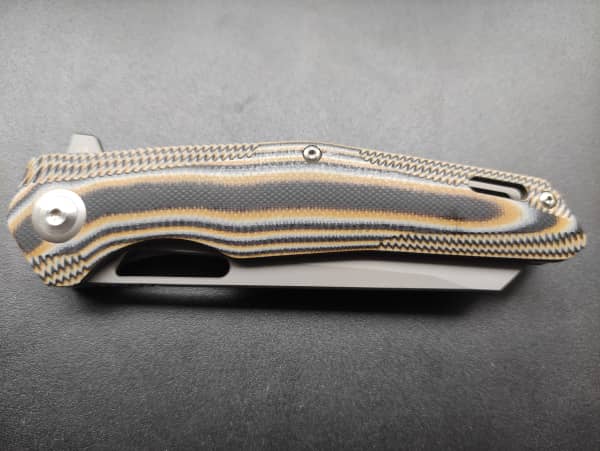
There’s very little difference between a thumb hole and a thumb stud. Only that in the former, you get a huge hole that is created inside a raised part of the blade just near the hilt of the handle. This hole allows a finger to slide in or any other object, which is then used to flip the blade open. Pocket knives that are designed for this type of opening mechanism usually are reliable and great to look at. They are ideal for people who love stuffing their pockets with all kinds of things.
Butterfly
This is the most stylish and most interesting pocket knife design you will ever come across. It has two pivot points that are designed in the form of two handles, like scissors. This allows the user to flip the knife open quickly, but it is not as easy as it may appear on paper. It requires the user to know which handle to use, how to twist it and when to finally catch the other handle to catch it in time for the blade to come out. The best part is that there are so many ways of opening the knife, and if you figure them out, you could be throwing party tricks at parties just for the fun of it.
Automatic Button
This is a more recent opening mechanism that combines modernization and style to give pocket knives a very easy way of opening. It comes with a single button near the end of the hilt. All you have to do is simply push the button, and the blade is fired out in one flash. They are easy to open with one hand, but you will need the other hand to close it manually. They are the kind of opening mechanism that would fit a defensive knife as you require speed when in dire situations.
Thumb Slide
This is a very satisfying way of opening a pocket knife as it involves the simple act of sliding out the blade. There’s an extension of the blade that protrudes from the side of the handle, and all it takes to get the blade out is to push the stud forward, revealing a nice blade that can be pulled back in quickly. They are very good as tactical and defensive knives due to the speed of releasing the blade. Once you slide the blade open, the spine locks into a groove to stop the knife from sliding back in until you release it.
Hidden Release
This is a unique way of opening a pocket knife that would make anyone feel like they are a secret agent writing on an undercover mission. There’s a bolster that is designed into the handle that can be slid aside to quickly release an automatic blade. If you need to close the blade, you simply close the switch and push the blade, and it closes up. Having this on your pocket knife is sure to make heads turn your way.
Conclusion
When choosing an opening mechanism, you have to consider the purpose of the knife. If all you need is just an ornamental pocket knife that helps you handle easy tasks like cutting tops or peeling fruit, then go for something simple that doesn’t require any complicated mechanism. But if you are looking for a tactical knife, then speed is important. Check out our website (Shieldon - pocket knife manufacturer) for more information on pocket knives.
You can also follow us through the following ways:
https://www.facebook.com/ShieldonCutlery
https://www.instagram.com/shieldon_knives_and_tools/
https://www.youtube.com/channel/UC_Dz--HODWHFY4AaUF0z11Q
https://twitter.com/Shieldonknives1/
https://shieldonknivesandtools.tumblr.com/
https://www.linkedin.com/company/72285346/
https://www.pinterest.com/shieldonknivesandtools/
More video introductions:
https://www.youtube.com/watch?v=aHKX1QrHIv4
https://www.youtube.com/watch?v=br9NK4CrTog
Article source: A Complete Guide to Pocket Knife Opening Mechanisms | Shieldon

